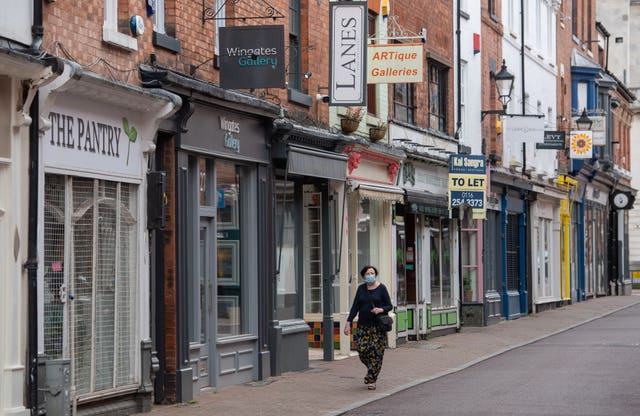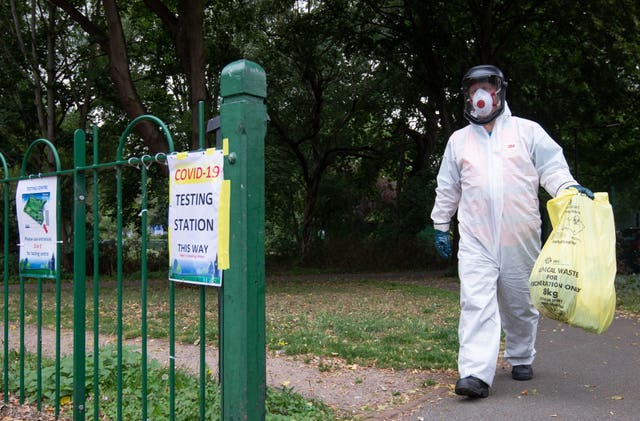Government to reach decision on future of Leicester lockdown this week
The city was the first to have localised restrictions which were reimposed on June 30.

The Government will decide later this week whether to make changes to Leicester’s local lockdown after examining the latest coronavirus data, the Health Secretary has said.
Matt Hancock said information covering the 14 days since the local measures were introduced will be looked at on Thursday followed by a public announcement “as soon as is reasonably possible”.
Leicester became the first place in the country to have tight restrictions reimposed on June 30 following a rise in coronavirus infections.
“Thankfully the numbers have been coming down in Leicester and we’ve put in that extra testing, but the number of positive cases in Leicester is still well above the rest of the country and I won’t prejudge the decision that we’ll take on Thursday and we’ll take into account all of the data.”
His comments follow claims from Leicester Mayor Sir Peter Soulsby that data being provided to local health officials is not detailed enough and up to two weeks out of date.
But one of the Government’s deputy chief medical officers, Professor Jonathan Van-Tam, has said that “the local authority is getting absolutely granular postcode-level data”.
According to data released on Monday, the rate of new cases of Covid-19 per 100,000 population in Leicester had fallen slightly from 117.7 in the seven days to July 3 to 114.3 in the seven days to July 10. It was 156.8 in the seven days to June 26.
Only two other local authorities had a rate of more than 40 new cases per 100,000 people in the seven days to July 10 – Pendle on 67.8 and Blackburn with Darwen on 41.0.
In Nottingham, the rate of new cases in the seven days to July 10 was 3.9 and in Derby it was 8.9.
Earlier on Tuesday, local NHS officials said the coronavirus outbreak and lockdown in Leicester had highlighted the need to tackle health inequalities.

Prof Azhar Farooqi, clinical chair of the Leicester City CCG, said the recent local “spike” of Covid-19 had triggered an “extraordinary” response from the NHS during a “tough time”.
He added: “One of the learnings… from this lockdown is really the impact of deprivation and ethnicity on health inequalities.
“I think as a CCG this has really brought to us a focus around the barriers… social, cultural and language to accessing health, and the impact of health beliefs.”‘
Prof Mayur Lakhani, clinical chair of the West Leicestershire CCG, said the health inequality agenda was “very, very key”, adding that “racial inequalities” were “notable” in the wider CCGs’ area.
Andy Williams, LLR CCGs chief executive, said: “Once again we see the impact of illness, in this instance Covid-19, impacting asymmetrically on our population”.
He explained that there were “structural in-built inequalities” in general society which meant disease impacts “asymmetrically the poorest or most disadvantaged”.

He labelled it as one of the “most persistent and stubbornly difficult” issues in society which “remains in strategic health terms probably the key challenge”.
Prof Farooqi acknowledged that Leicester’s lockdown had caused a “delayed recovery to a degree, certainly in primary care” and said efforts were needed to ensure the city was not left behind.
Meanwhile, Zuffar Haq, an independent lay member of the Leicester City CCG, said he was “shocked at the number of patients that don’t have a GP registered in the city”.





